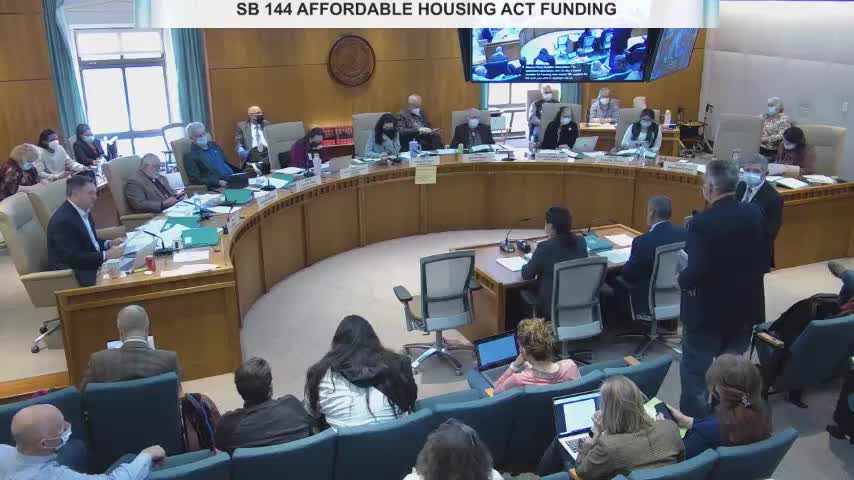Senate committee advances social work licensure compact amid questions on tribal law training and immunity language
Get AI-powered insights, summaries, and transcripts
Subscribe
Summary
The Senate Health and Public Affairs Committee voted 5–4 to give Senate Bill 105 (social work licensure compact) a due pass to judiciary after testimony highlighting Department of Defense support, budget and background‑check needs, concerns about Indian Family Protection Act training and objections to qualified‑immunity language.
Senator Trujillo’s measure to adopt the Social Work Licensure Interstate Compact (Senate Bill 105) moved out of the Senate Health and Public Affairs Committee by a 5–4 vote on a due‑pass motion, sending the bill to the Judiciary Committee for further legal review.
The compact, which Senator Trujillo described as similar to other professional licensure compacts, drew support from military and provider groups and questions from several senators about how compact privileges would interact with New Mexico law and tribal practice.
Why it matters: Supporters said the compact speeds licensure for providers who move between member states — a frequent issue for military families — and could help address the state’s social‑work workforce shortage. Opponents and some committee members pressed for assurances that compact licensees would meet state requirements on culturally specific practice (including training related to the Indian Family Protection Act) and flagged a recurring compact clause that would grant immunity and venue protections to the interstate commission.
What supporters said Melissa Salazar, director of Boards and Commissions in the Regulation and Licensing Department, told the committee the department “does not speak in favor or against the proposed bill. We wish only to point out that the operating budget impact contained in our FIR of 56,000 was not included in our current submitted budget. Therefore, if the bill is passed, an authorization or appropriation will need to be made to allow boards and commissions division to carry out the mandate required by the bill.”
Dan Weeks, representing UNM Hospital in Bernalillo County, said the compact would help recruit social workers for a state that already has “a very, very significant shortage.” Adrian Gomez of the Greater Albuquerque Chamber of Commerce said the compact helps New Mexico “remain competitive” and can expand telehealth access by easing cross‑state practice for licensed providers.
Questions and concerns Several senators asked how compact privileges relate to passing the national social work exam and whether compact licensees would be required to follow New Mexico law when treating New Mexicans or clients located in the state. Senator Pinto and others pressed whether compact holders would be required to have training or certification addressing the Indian Family Protection Act (state law often referenced as IFPA in testimony). Senator Trujillo and witnesses said compact practitioners must follow the laws of the state in which the client is located; the sponsor suggested the state could add a requirement (by statute or board rule) that practice in New Mexico include specific training or continuing education.
Senator Block and others spoke at length about a recurring provision in recent compact drafts that would grant “qualified immunity, defense and indemnification” to a compact commission and permit venue for legal actions in the commission’s principal office (language several senators said appeared to limit New Mexico’s access to remedies). Senator Trujillo said she expected amendments addressing those legal provisions in Judiciary.
Formal action A motion for a due pass to Judiciary was moved and seconded in committee. The committee recorded a 5–4 vote to advance the bill to Judiciary.
Where it goes next: The bill advances to the Senate Judiciary Committee for additional legal review and likely amendment around immunity, venue and implementation details.
